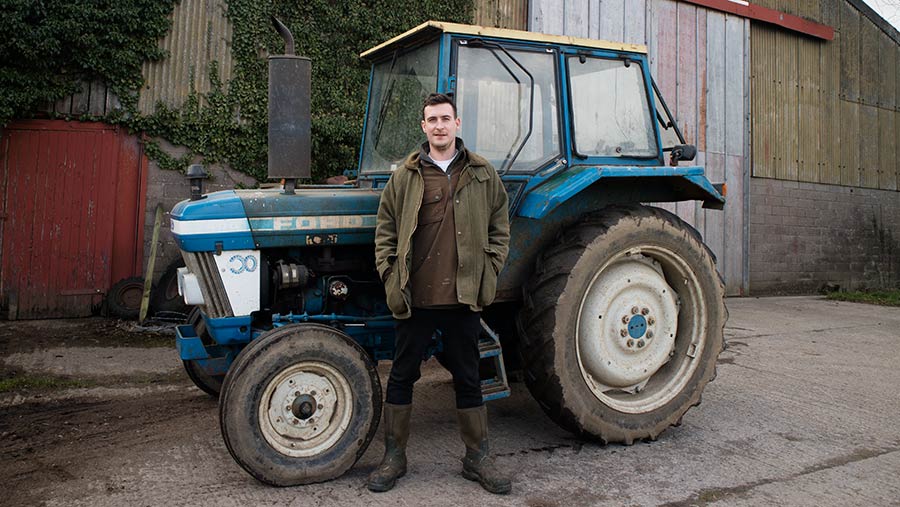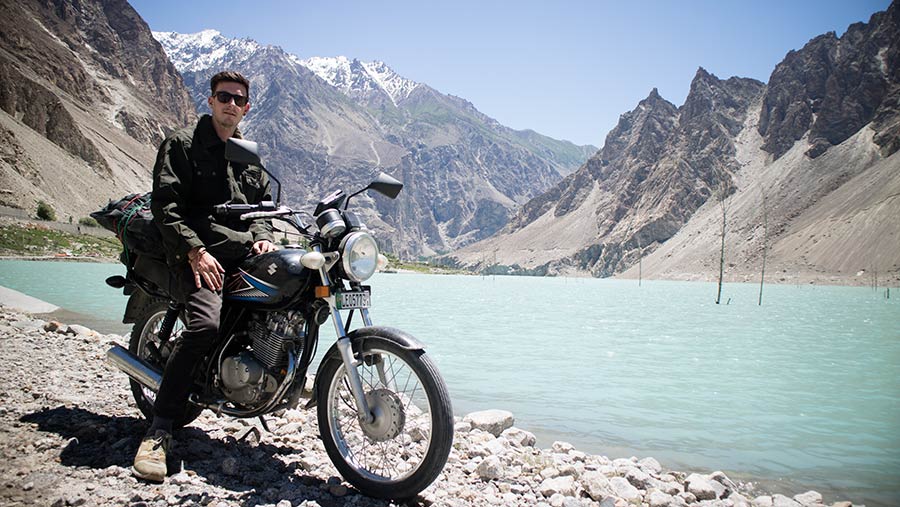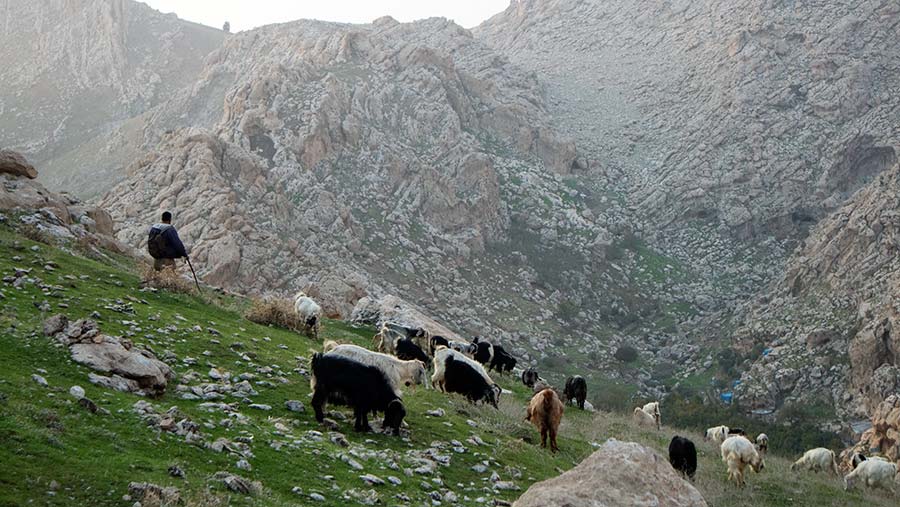Young farmer discovers ag chat unlocks overseas adventures

Peter Burn on his family’s farm near Morpeth
Travelling exotic and, at times, dangerous corners of the world was never something that Peter Burn imagined would be for him. He left school at 16 with the ambition of working on farms in Northumberland.
Fast-forward almost a decade and the farmer’s son has explored 52 countries – the most recent being war-ravaged Syria.
He’s found that his ties with farming have helped breakdown language and cultural barriers abroad, unlocking an immersive experience in foreign lands.
See also: Shropshire dairy farmer on his emotional overseas aid work
At school, Peter had a desire to carve a career in agriculture and found full-time work on a 800ha mixed farm near his family’s livestock enterprise, just outside the market town of Morpeth, some 15 miles north of Newcastle upon Tyne.
It was only when he started to see fellow young farmers take off for work abroad that he began to ponder life overseas.
“I never really wanted to travel the world, but I really wanted to work out in New Zealand on a dairy farm,” says the 25-year-old.
Having worked in most other farming sectors, Peter was keen to gain dairying experience and had heard about the impressive setups that some New Zealand farmers were running.
Flying solo
He boarded a one-way flight to the other side of the globe, finding work on a unit south of Christchurch on the country’s southern island.
He spent the following six months milking, calving and driving tractors, all the while earning good money for a well-deserved month or two on the road exploring all the country had to offer.
After a further three-month stint working at a kiwi fruit orchard spraying and harvesting the trees, Peter’s time working abroad was seemingly at an end.
“The initial plan was to work in New Zealand for a year and then come home,” he says. “But I’d caught the travelling bug by then and that year just went so quick.
“Australia was just next door, so I started Googling for jobs and found there was so much work available for tractor operators.”
It was well-paid work, too, with some shifts earning him the equivalent of almost £14/hour. This is where Peter’s cycle of working hard, earning good money and then travelling a country to absorb its culture really got into its stride.
He landed a job at a 2,000ha beef and arable farm in the remote vastness of Western Australia, where the nearest pub was a two-hour drive away, then spent three months raking up silage for a contractor in New South Wales and even did a spell driving a 30t dumper truck.
“It’s an addiction to always want to see more and more of the world,” he explains. Even when he eventually decided to head back to the UK, he returned via Asia and was instantly captivated by Middle Eastern culture.
Sheep and snow leopards
Back at home, he’s currently working for three farmers during the hectic lambing season and plans to visit Pakistan for a second time this June.
Having taken a 150cc motorbike for a grand tour of the mountainous northern region two years ago, he’s itching to explore more of the country.

Peter Burn on his motorbike in northern Pakistan
“I got this motorbike and took it up to the mountains, where there’s a lot of livestock farmers with sheep and goats. I actually stayed with a farmer in his shepherd’s hut and they do speak some English.
“I told him about how we had 2,000 sheep at home, and he said I must be a very rich man, because owning 100 sheep is means you’re very wealthy in Pakistan.”
Peter told the farmer how sheep in the UK are at risk of attack from foxes, showing him a photo because he had not heard of this creature. The farmer dismissed Peter’s fox tale, explaining that his sheep are sometimes eaten by snow leopards.
“They says that music is an international language, and I think farming is too. It is a fantastic international connection,” he says. “There are farmers in every country in the world and it has been fascinating to see how they work all around the world.”

A goat farmer in Northern Iraq
He encourages more farmers to travel the world, especially the younger generations, although he does accept that not everyone has the luxury of being able to leave the family farm for long periods of time.
“I’m lucky in that I’m not relied upon on the farm. I was inspired by my dad, but I was never told to do a certain thing. If you get the opportunity to travel, then you’ll never regret it.
“It works really well for me and the farmers I work for because I’m around when they need an extra pair of hands and then I go travelling when they don’t.”

Peter’s most recent trip was to Syria, where he saw the damage caused by war in places such as Allepo.
Peter is clear that this solo adventuring isn’t something that he will continue past his youth, because he still dreams of running the farm. He has already laid the foundations of a return to life in rural Northumberland, founding a music festival called West Ben Fest on the farm four years ago.
“I love my home life, the farm and the countryside and I’m very much a local lad. I know there’s a time coming when I will need to do more on the farm and my dream is to run an events business on the farm.”

